SEBI ICDR Regulation for Promoter and Promoter Group
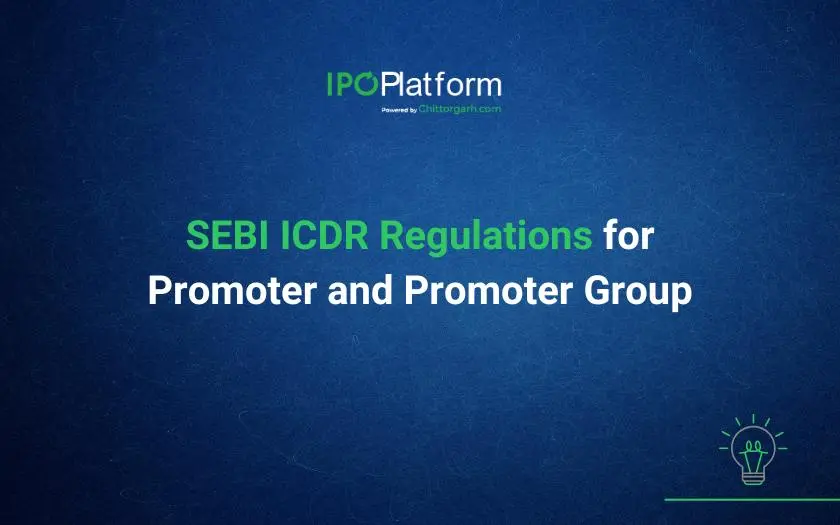
A company aiming to go public has to fulfil the listing criteria and eligibility criteria of SEBI in the case of Mainboard IPO and relevant stock exchanges for SME IPO in India. Various listing requirements as laid down in SEBI ICDR Regulations are to be met for maintaining compliances and transparency in the IPO process.
One such IPO eligibility norm relate to Promoter and Promoter Group details and other information related to them. The Regulatory authority require promoters and their related entities to submit specific documents for verification. These documents help in assessing financial credibility, legal standing, and the overall integrity of the business and its promoters.
Promoter and promoter Group information forms an important part of DRHP. Let’s understand this and its importance while filing draft red herring prospectus with SEBI/relevant stock exchange.
Following questions generally come up when dealing with the promoter group:
Q. What is a Promoter Group?
A promoter is a person or entity responsible for establishing and laying the foundation of a company. They play a crucial role in decision-making and financial management.
The Promoter Group includes:
1️. The promoters themselves (an individual or a company).
2️. Immediate relatives of the promoter which includes:
• Spouse
• Parents (of both the promoter and the spouse)
• Siblings (brother or sister of both promoter and spouse)
• Children
3. Companies where the promoter holds 20% or more of shares.
4️. Firms or Hindu Undivided Families (HUFs) where the promoter and their relatives hold 20% or more of total capital.
These individuals and entities are closely linked to the promoter’s financial and business activities. Authorities require documents from them to ensure financial transparency, identify potential risks, and prevent fraud.
Q. What happens if the promoter's relatives are unwilling to furnish the required documents?
If a relative of the promoter is unwilling to provide the required documents, the Issuer company may request an exemption from SEBI. This exemption is filed to seek relief from the obligation to collect these documents and from classifying such relatives as part of the promoter group. However, such exemption is granted only if the regulatory authority approves it and this is very contingent and time taking. Such exemption filing also has additional costs attached to it.
Q. Can the DRHP for IPO be rejected if such promoter group documents are not furnished?
The promoter group documents are mandatory requirements hence Exchange may reject the offer document (DRHP) if relevant documents are not furnished to them.
Q. What measures are available if such documents are not filed or unavailable at the time of filing DRHP for IPO?
The Issuer company can apply to SEBI for an exemption, requesting a waiver from the requirement to obtain specified documents from the promoter group. However, such exemption is granted only if the regulatory authority approves it and this is very contingent and time taking. Such exemption filing might also have additional costs attached to it.
Q. Are the promoter group documents shared with the Merchant Banker made public?
No, the documents collected from the promoter group will not made public apart from the name of the promoter group. It has been observed that many times the promoter group are unwilling to share personal information but it is to be noted that such information is crucial for DRHP filing as they are part of documents that have to be submitted on NEAPS platform of NSE Stock exchange. Please note that such documents are never made public.
Q. Is there any requirement to publish the Promoter Group documents in the DRHP/RHP?
No, there is no requirement to publish the required documents in DRHP/RHP.
Q. Why does SEBI or NSE SME Emerge or BSE SME need the KYC documents of the promoter Group?
According to SEBI ICDR regulations 228 (a), it is essential to check IPO Eligibility of a company to proceed going public. A company cannot proceed with an IPO if the company itself, its promoters, their close associates, directors, or any selling shareholders are banned by SEBI from accessing the stock market.
SCHEDULE VI of the SEBI ICDR regulation, 2018 states that
- A disclosure statement by the Issuer in the DRHP that the Issuer, Promoters, Promoter Group, Directors, person(s) in control of the promoter or Issuer, if applicable, or selling shareholders are not prohibited from accessing the capital market or debarred from buying, selling or dealing in securities under any order or direction passed by the Board or any securities market regulator in any other jurisdiction or any other authority/court. This requires Promoter Group documents to verify its eligibility for IPO purpose.
- Disclosure in DRHP for confirmation that the Issuer, any of its Promoters, Promoter Group or selling shareholders is in compliance with the Companies (Significant Beneficial Ownership) Rules, 2018.
It is provided that NEAPS platform is used (NEAPS is NSE Electonic Application Processing System, an online platform used by companies to submit compliance disclosures) to submit the documents required for listing purposes. One such requirement is submission of promoter Group documents which can be seen on this link: https://nsearchives.nseindia.com/web/sites/default/files/inline-files/In-principle_checklist_MainBoard
Following promoter Group documents are to be submitted on NEAP
- Full Name, PAN and Address of the Issuer, Promoters, Promoter Group and Directors
- To be further noted that in compliance with section 29(4) of the Aadhaar Act, 2016, the offer document does not contain the Aadhaar Card Numbers/information of any promoter/promoter group/group members or any individual.
Q. Why there is a need of KYC of Promoter group?
- As per the NEAPS platform of the exchange it is stated that for KYC purposes full name. PAN and address of the Issuer, promoter, promoter group and directors is required.
- As per the Eligibility requirement of ICDR It has be checked that The Issuer, its promoters, promoter group, directors, or selling shareholders are currently not debarred from accessing the capital market by the Board.
- As the relatives of the promoters are not allowed to subscribe to the Issue, PAN is mandatorily to be submitted to confirm the same.
Q. What Documents are required from the Promoter Group as part of Listing Requirement or IPO?
1. Documents Required from the Promoter (Individual or Corporate)
|
Document |
Purpose |
|
Relative Chart of Promoter Group (signed) |
Identifies all related individuals and entities. |
|
KYC Documents (Aadhar, PAN, Driving License, Passport) |
Confirms the promoter’s identity and nationality. |
|
CIBIL Report |
Assesses credit history and financial credibility. |
|
Income Tax Login Credentials / Outstanding Tax Screenshot |
Ensures tax compliance and identifies pending dues. |
|
MIS Backup of Income Tax Notices and Replies (if any) |
Tracks previous tax disputes and compliance history. |
|
Interest of Promoters |
Discloses the promoter’s financial interests in different companies. |
|
MBP-1 & DIR-8 |
Regulatory disclosures regarding business interests and directorships. |
|
Affidavit on Litigation History |
Ensures transparency about past and ongoing legal disputes. |
|
Bank Statements (Last 1 Year) |
Checks financial stability and cash flow. |
|
DIN Number (if allotted) |
Identifies the promoter as a registered company director. |
Why promoter documents are needed?
1. To verify the promoter's identity and legal status.
2. To check financial stability and creditworthiness.
3. To ensure compliance with tax laws and legal disclosures.
2. Documents Required from Individual Promoter Group Members
2. Documents Required from Individual Promoter Group Members
|
Document |
Purpose |
|
KYC Documents (Aadhar, PAN) |
Confirms identity and nationality. |
|
For NRIs: OCI Card, Passport |
Confirms overseas citizenship and tax status. |
|
CIBIL Report |
Evaluates financial standing and creditworthiness. |
|
Affidavit on Litigation & Defaulter Status |
Confirms legal and financial history, including fraud status. |
|
DIN Number (if allotted) |
Identifies if they hold a directorship in any company. |
Why these documents are needed?
1. To verify the identity of close family members involved in the business.
2. To check if any relative has any financial or legal risks.
3. To prevent fraud and money laundering.
3. Documents Required from Companies Promoted by the Promoter
A company promoted by the promoter is any company where the promoter (or their relatives) holds 20% or more shares.
|
Document |
Purpose |
|
PAN Card |
Tax identification of the company. |
|
Address Proof |
Confirms official business location. |
|
Default Certificate from CA |
Verifies if the company has any financial defaults. |
|
Investment Certificate from CA |
Confirms the promoter’s investment in the company. |
|
Affidavit on Litigation & Defaulter Status |
Ensures transparency about past and ongoing legal cases. |
Why these documents are needed:
1. Identify financial and legal risks in firms linked to the promoter.
2. To confirm the credibility of businesses influenced by the promoter.
Q. Why promoter and promoter group information is crucial for filing DRHP?
By collecting these documents, SEBI/BSE SME/NSE Emerge can ensure the following
1. Verify the Legitimacy of Business Ownership
- Why it matters: Promoters are usually the founders or key stakeholders in the company. Their involvement and control are critical to the business’s operations and growth. SEBI and the stock exchanges need to confirm that the promoters have legitimate ownership and are not involved in any disputes regarding control.
- What SEBI/BSE/NSE can verify: By reviewing the promoter's background, ownership structure, and any changes in the promoter group over time, SEBI and the exchanges can verify that the promoters are legitimate and have full, undisputed control over the business. This helps prevent issues like fraudulent or hidden ownership.
2. Assess Financial Health and Tax Compliance
- Why it matters: Promoters often play an instrumental role in the financial decisions of a company. Their personal and business financial health can directly impact the company's stability and growth prospects.
- What SEBI/BSE/NSE can verify: Promoter and promoter group information includes details on their financial position, investments, and tax records. This allows the regulatory bodies to assess whether the promoters have been financially responsible and tax-compliant. Any issues related to financial mismanagement or tax evasion could raise red flags about the company’s overall financial health, which could potentially harm investors.
3. Identify Legal Risks Such as Outstanding Litigations and Fraud
- Why it matters: Promoters may sometimes have personal or business-related legal issues, such as ongoing litigation or fraud cases. This information is important because such issues could affect the company’s reputation, operations, and financial standing.
- What SEBI/BSE/NSE can verify: By collecting and verifying information about any legal disputes involving the promoters, SEBI and the stock exchanges can assess the potential risk these issues pose to the company’s future. If any promoter has been involved in criminal activity, financial fraud, or has unresolved legal matters, it may indicate high risk for investors, and the company might be deemed unfit for listing.
4. Ensure that the Business Follows Regulations and Avoids Financial Crimes
- Why it matters: Regulatory compliance is a core requirement for any business seeking to list on the stock exchanges. The integrity of the promoters is crucial, as their past actions and compliance with regulations will determine whether the company will be allowed to list.
- What SEBI/BSE/NSE can verify: By assessing the promoters’ adherence to legal and regulatory frameworks, including anti-money laundering (AML) laws, securities regulations, and corporate governance guidelines, SEBI and the exchanges ensure that the business is operating ethically. Promoters who have been involved in financial crimes, such as money laundering, insider trading, or market manipulation, can disqualify a company from listing, protecting investors and the financial market from undue risks.
Conclusion
Promoter and promoter group documentation is a crucial part of the IPO process, ensuring that companies seeking to go public are financially sound, legally compliant, and transparent. SEBI and stock exchanges rely on this information to protect investors and maintain the integrity of the market. Failure to submit the required documents or obtain exemptions can result in the rejection of the DRHP, delaying or halting the IPO process.


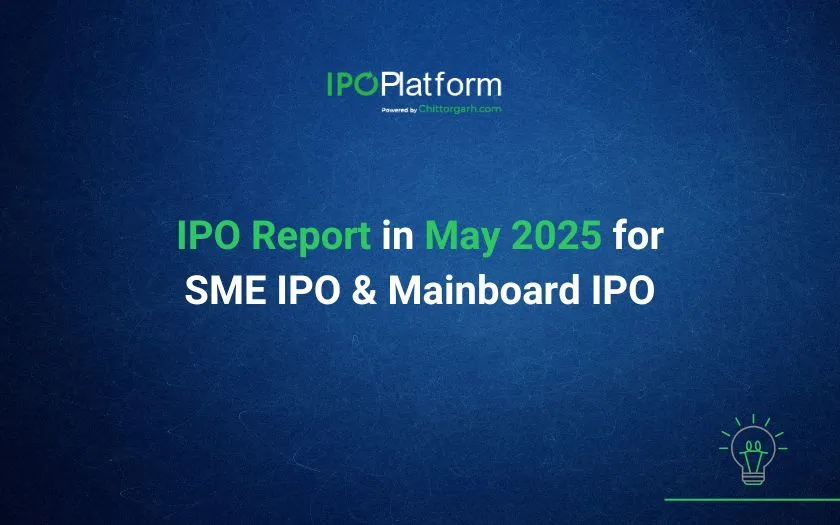
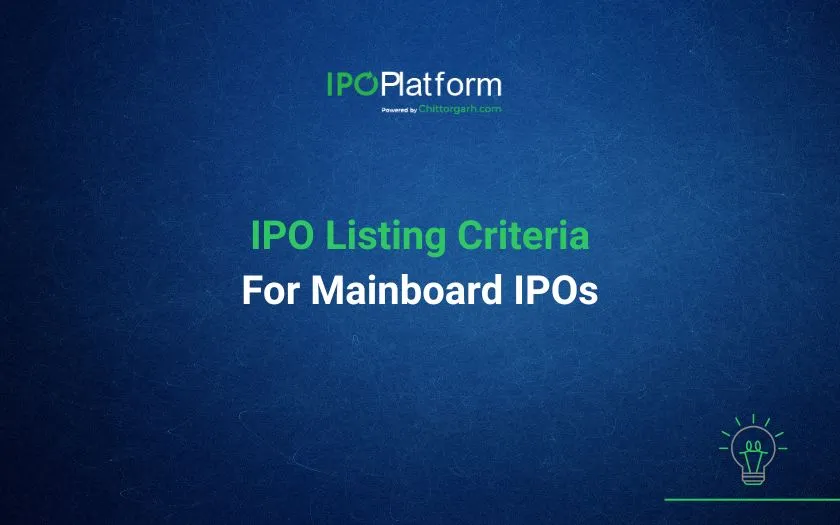
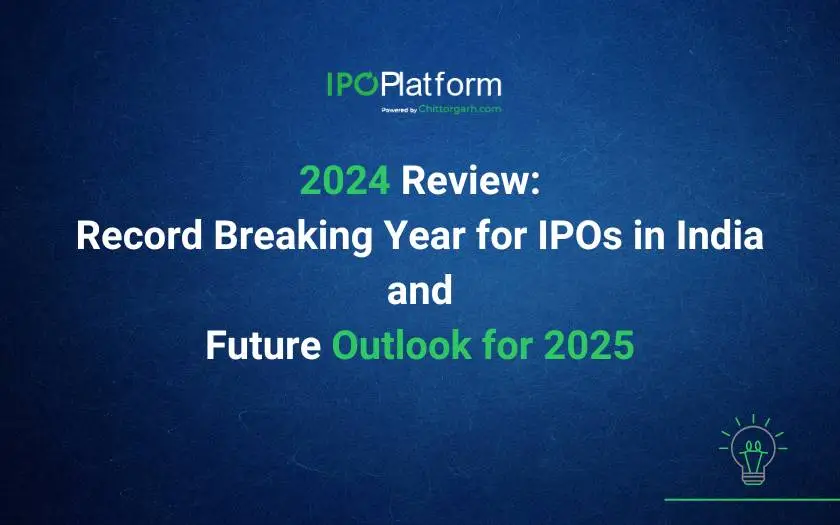
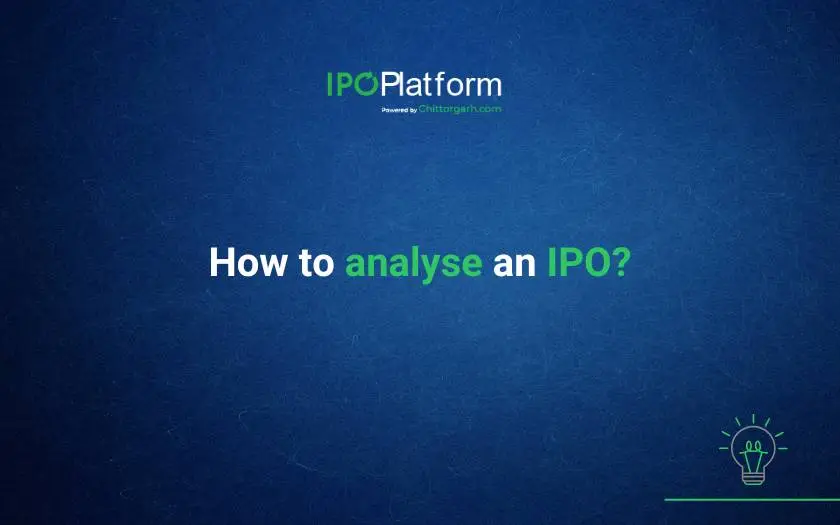
0 Comments